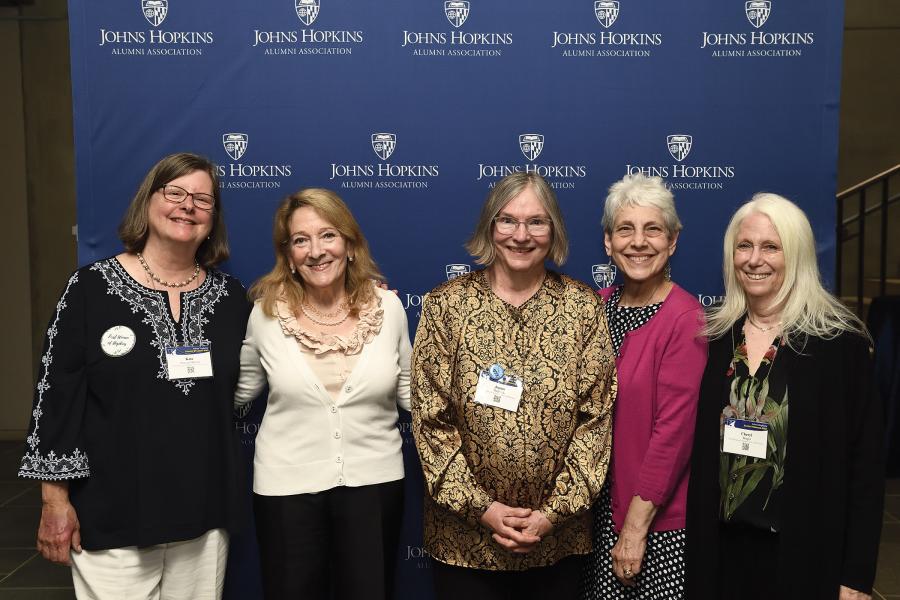When Johns Hopkins University began admitting female undergraduates in the fall of 1970, the women were largely left to fend for themselves as the university played catch-up after a long tradition of all-male undergrad life. The Rev. Kate Seavey Bryant, A&S '73, and Cheryl Skigin, A&S '73, remember when they were the only women in the lecture hall or classroom.
"Hopkins prepared me well to wrestle with what it's like being the first woman," Seavey Bryant says. "After graduation, in various contexts throughout my professional life, I've been 'the first woman.'"
Although their presence on the Homewood campus was at times fraught, they still describe their experiences as positive, formative, and foundational. The Homewood campus was filled with professors who wanted to hear their insights. Seavey Bryant and Skigin say they were encouraged to approach situations in new ways and to take courses outside their majors to broaden their horizons.
"Imagine a smorgasbord of all the most fantastic foods you could ever want to eat—to me, Hopkins was that, but on a learning basis," Skigin says. "I could dabble in anything I wanted. The way that the Hopkins faculty treated me during that time frame allowed me to grow intellectually and to free up my creative intellect to chase all my dreams."
Seavey Bryant and Skigin don't remember any official efforts to bring the group together. Their distance from campus, with most of the women housed in McCoy Hall or in off-campus apartment buildings, didn't help matters. Yet the women made lasting friendships. Seavey Bryant remembers herself and her roommates, H. "Brook" Randal, A&S '73, and Lynn Parker Coates, A&S '73, serving as timers for the men's swim team as a way to get involved.
"They said, 'We've got these women around, so what can they do?'" Seavey Bryant says. "And they decided they would love to have us as timers at practices."
Skigin remembers her friend and classmate Cynthia LeBoutillier, who died in 1974, as "intellectually so open, creative, brilliant, and, at the same time, so human"—qualities that epitomized her own experience at Hopkins, she says.
Seavey Bryant is a retired Episcopal priest in Virginia, and Skigin is an attorney in California. Building on the foundations of empathy and discovery that began at Hopkins, they've maintained a lifelong love of learning and critical thinking that has defined their public service careers.
"They nurtured your intellect. They supported it. They were excited for you," Skigin says. "And when someone's excited for you to learn, you only want to learn more."
Posted in Alumni
Tagged alumni, friends for life








